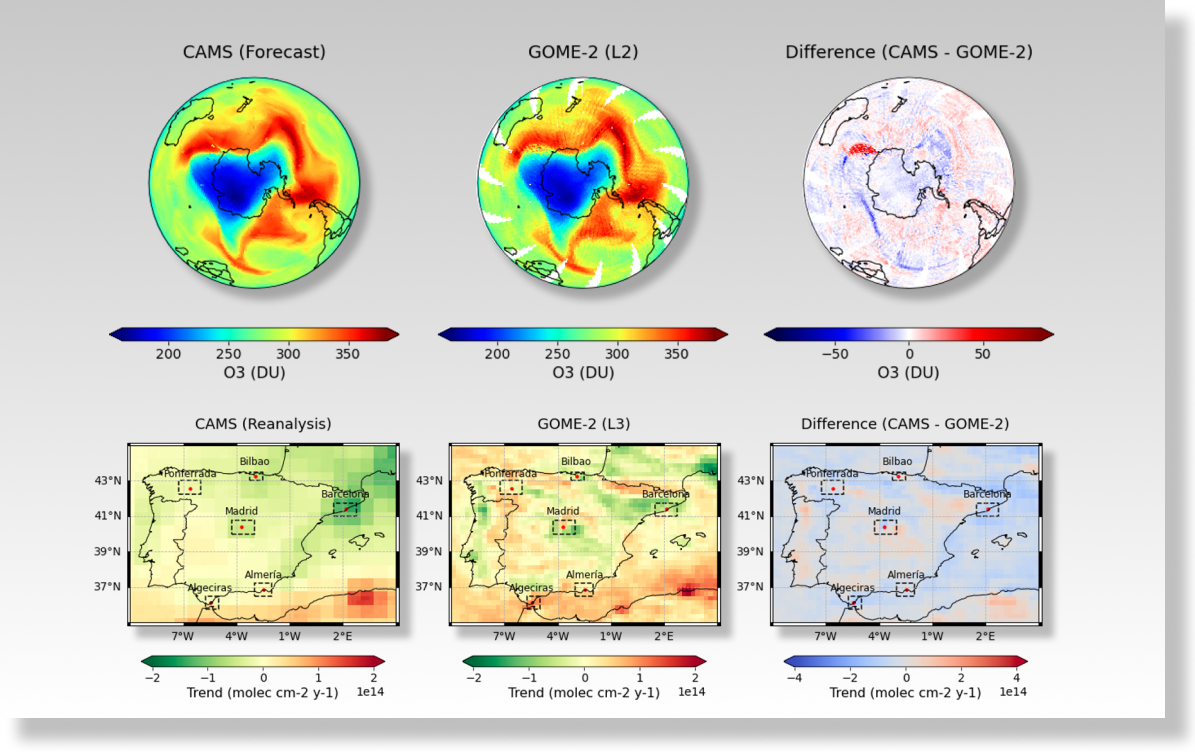Comparing Atmospheric Composition Datasets
The Atmospheric Datasets Comparison Toolbox (ADC) is a set of tools that allows users to merge and compare atmospheric composition datasets from different sources.

Background
In an effort to compare and validate spatial datasets, researchers face numerous challenges. Despite the fact that nowadays these data are more readily available than ever, users find integrating them troubling due to their disparate spatial and temporal resolutions and dissimilar metadata.
Designed to facilitate interoperability
ADC Toolbox addresses this issue for atmospheric composition datasets, offering a set of functions, written in Python, that facilitate: file interoperability, binning and regridding, computation of levels pressure, conversion of units, application of the averaging kernels, datasets merge, geostatistical comparison and trend analysis.
Examples are also provided, in the form of Jupyter Notebooks, to show how to combine these functions and understand the possible comparisons. The code is available in the GitHub repository.
Comparisons available
The ADC toolbox enables the mutual coverage of events (e.g. volcanic eruptions and fires), identification of air pollution trends and detection of anomalies for data validation, to improve the assimilation of observations into the CAMS system.
Currently, it is possible to compare:
- Forecast data from CAMS model vs. L2 near real-time data from TROPOMI, IASI and GOME-2 sensors.
- Reanalysis monthly data from CAMS model vs. L3 monthly data from TROPOMI, IASI and GOME-2 sensors.
Key features
Automatic process
Retrieve all necessary datasets and compare them in an efficient and automatic way.
Highly customizable
Compare the available datasets for any period and location and generate a complete comparison analysis.
Easily accessible
Use WEkEO’s JupyterHub to set up the virtual environment and run the code, available in the GitHub repository.
Benefits of WEkEO for ADC Toolbox
The operations used in the ADC toolbox are demanding in terms of computational resources and WEkEO provides the sound infrastructure that enables to:
- Speed up the software deployment
- Avoid primary memory issues
- Easily use the toolbox after the development stage
Contact us to know more about ADC Toolbox.





